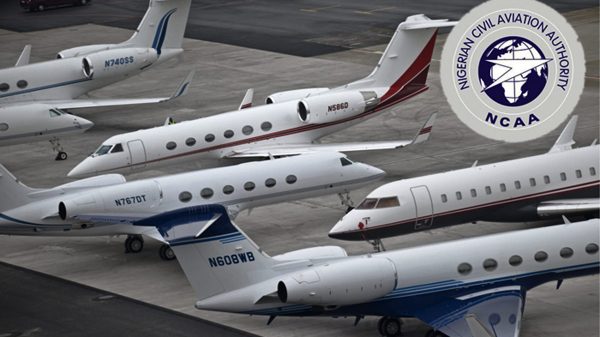The Nigerian Civil Aviation Authority (NCAA) is intensifying its efforts to protect consumer rights within the aviation sector by preparing to impose sanctions on more airlines found to be in violation of consumer protection regulations. This wave of enforcement actions follows recent sanctions against five airlines – Royal Air Maroc, Ethiopian Airlines, Air Peace, Arik Air, and Aero Contractors – for unresolved passenger complaints and non-compliance with regulatory directives. The NCAA’s Director of Public Affairs and Consumer Protection, Michael Achimugu, confirmed that additional sanctions are imminent and are currently undergoing legal review before being finalized by the Director-General.
The NCAA’s enforcement process involves a multi-stage procedure designed to ensure legal soundness and due process. Achimugu initiates the sanctions, which are then escalated to the legal department for review. This review confirms that the proposed sanctions align with regulations and protect the NCAA from legal liabilities. Following legal clearance, the sanctions are submitted to the Director-General for final approval and signature. It’s only upon the Director-General’s signature that the enforcement action becomes official. This structured approach emphasizes the NCAA’s commitment to a fair and transparent enforcement process.
The initial round of sanctions has already prompted responses from several airlines. Air Peace’s chairman publicly acknowledged and accepted the sanctions, demonstrating a willingness to cooperate with the NCAA. Aero Contractors reported progress in resolving seven out of the eleven cases for which they were sanctioned. Similarly, Ethiopian Airlines stated they had addressed the issues raised by the NCAA, though they were asked to submit a compliance report to confirm the timing of their resolutions. Arik Air indicated that its legal team is reviewing the sanctions. Royal Air Maroc has been summoned to the NCAA’s office for a meeting regarding the sanctions imposed upon them.
Despite the positive responses, the NCAA maintains that the enforcement process will continue for any outstanding unresolved infractions. Even for airlines that have partially addressed the complaints, any remaining unresolved issues will still be subject to sanctions. Furthermore, the NCAA emphasized that failure to respond to their correspondence is itself a sanctionable offense. This reinforces the seriousness with which the NCAA views compliance with its regulations and its commitment to holding airlines accountable for their actions.
The sanctions primarily consist of monetary fines and do not affect the airlines’ operational status. This approach aims to penalize non-compliance without disrupting air travel services. The specific fine amounts are determined by the nature of the infraction, as outlined in the NCAA regulations. This ensures that penalties are proportionate to the severity of the violation. The emphasis on financial penalties underscores the NCAA’s intention to enforce consumer protection regulations effectively while minimizing disruptions to the aviation industry.
The NCAA’s proactive enforcement efforts appear to be yielding positive results. Since the announcement of the sanctions, airlines have demonstrated a greater urgency in addressing passenger complaints and issuing refunds. This indicates that the sanctions are serving as a deterrent and encouraging airlines to prioritize consumer rights. The NCAA views this as a positive development and plans to continue its robust enforcement actions to ensure sustained improvement in consumer protection within the Nigerian aviation sector. The NCAA’s commitment to upholding consumer rights and its proactive enforcement strategy are contributing to a more responsive and accountable aviation industry in Nigeria.














